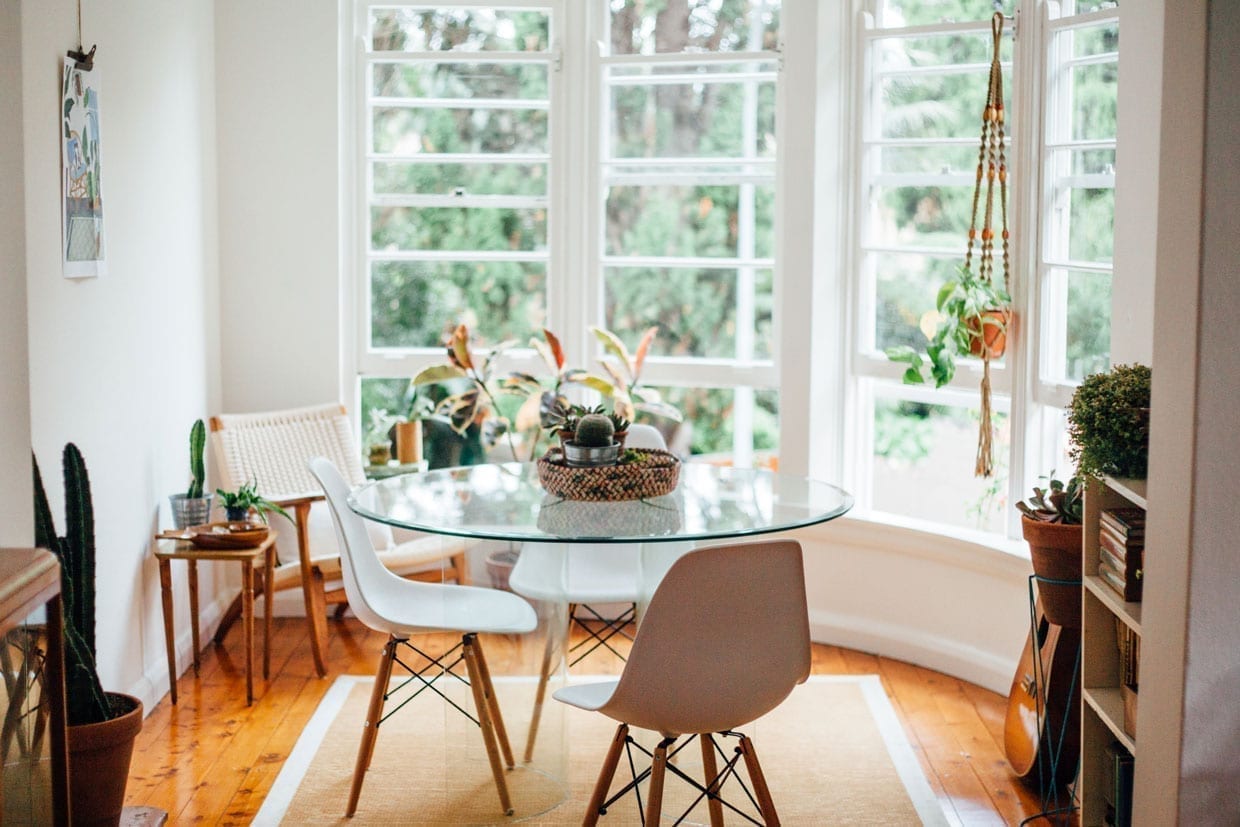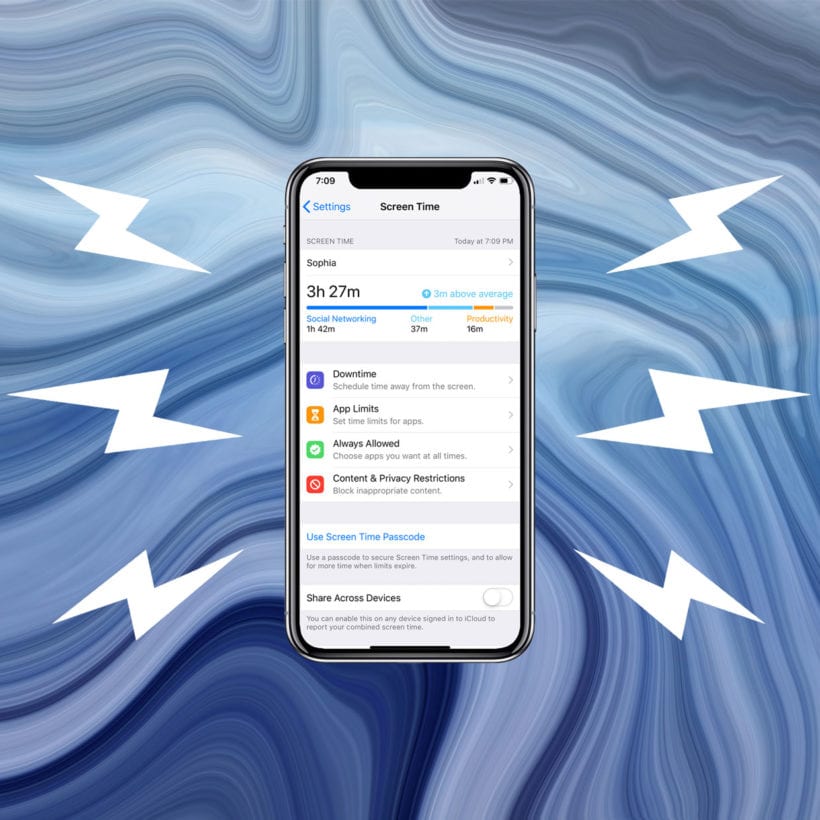Deep cleaning the air in our home can protect us and our loved ones from the health-threatening dangers of air pollution. According to a new study by the European Court of Auditors, “about 400,000 people die prematurely each year due to excessive air pollutants, such as dust particles, nitrogen dioxide and ozone.”
And while outdoor pollution is a major concern, indoor pollution can also play a part, with toxins found in household cleaners, furniture upholstery, carpet and other home items wreaking havoc on the air we breathe, which is why people are more concerned with protecting their lungs and skin from harmful particles. While the air is not typically the first thing we think about when cleaning the home — especially when that smudged mirror is staring back at us — it is ultra-important to our health and something we should think about on a regular basis.
Up ahead, we examine easy, natural and effective ways to purify the air in your home.
Air Purifiers
https://www.instagram.com/p/BpUfS-zFEK8/
Purchasing an air purifier is one of the most effective ways to naturally clear the air in your space. “Air purifiers typically use a system of internal fans to pull in the air in your home. Once the air is pulled into the purifier, the air passes through a series of filters that remove harmful airborne particles like dust, pollen and bacteria,” explains Alissia Zenhausern, NMD, a naturopathic physician at NMD Wellness of Scottsdale.
While virtually anyone can benefit from adding an air purifier to their enclosed space, Zenhausern particularly recommends a HEPA purifier, which is a type of air filter that can remove 99.97 percent of particles that are 0.3 micrometers or greater, to anyone exposed to pets, flame retardants, chemical cleaners, secondhand smoke, high traffic areas, farms or water damage. Additionally, if you have an attached garage, she says an air purifier is a must. “Attached garages are one of the leading contributors to poor indoor air quality,” says Zenhausern. “The pollution from cars can seep into your living area from an attached garage,” she adds. “Even if the garage door is open, the exhaust from the air [can be] pulled towards the home.”
If you suffer from allergies, or sensitivities from pet dander or chemicals (also known as multiple chemical sensitivity, or MCS), an air purifier is a must. “If you have MCS, it is really important to invest in a high-quality air purifier that contains even more odor and chemical filtrations and are manufactured with material that will not off gas,” says Zenhausern. She recommends The MoleKule purifier for anyone with severe allergies, as it can trap pollen and dust and also “kill bacteria, viruses and mold that commonly cause disease.”
In addition to an air purifier for your home, you might also consider a portable one such as the Wynd Essential Smart Personal Air Purifier for your office, hotel rooms and other places you might need an on-the-go filter. But Zenhausern says to proceed with caution. Since it is small, “it [takes] hours to filter the air in a single room.” She also says that transparency is key with air purifiers and, although the Wynd claims to kill germs, “it doesn’t tell us how.”
Natural Room Fresheners
https://www.instagram.com/p/BqdXYFanlKO/
When it comes to cleaning your air, Zenhausern says to ditch the candles with synthetic — i.e. potentially toxic — ingredients like benzene and toluene, as well as the traditional air fresheners with chemical-ridden formulas for something more natural. Make your own lemon room refresher by “dissolving half a cup of baking soda into two cups of hot water. [Then], add a quarter cup of lemon juice and pour into a misting spray bottle,” says Zenhausern. If you want to spice things up, she also recommends a warming vanilla spice aroma with one cup of water, one cup of white vinegar, one tablespoon natural vanilla extract and a few drops of cinnamon essential oil.
Diffuse Essential Oils
https://www.instagram.com/p/BvmiwNfgNH3/
In addition to natural room fresheners, you can also diffuse essential oils to clean the air in your home. “The Environmental Protection Agency recently released a study that [says] our inside air contains more pollutants than outdoor air,” says Zenhausern. “This is why it’s so important to focus on cleaning out indoor air,” she adds.
For essential oils with anti-microbial properties, Zenhausern says you can diffuse tea tree, grapefruit oil, cinnamon, oregano [or] eucalyptus. Additionally, if you have allergies, she suggests trying a few drops of peppermint oil, “which acts as an expectorant, meaning it helps to eliminate mucus and pathogens typically seen in allergy sufferers.” You might also want to try adding some basil oil to your diffuser as it “reduces inflammatory responses to allergens and has [properties] that helps kill bacteria, yeast, and mold.”
Essential oil diffusers are easy to come by and you can find them in a variety of types including ultrasonic (one of the more popular types), nebulizing, evaporative and heat. When it comes to choosing a diffuser, it is all about preference as “it’s more about the quality and type of essential oil used rather than the type of diffuser you own that makes a difference,” explains Zenhausern. “When it comes to quality, you want to make sure your oils are organic so that you protect yourself from highly concentrated pesticides commonly found in cheaper, less pure oils.”
Houseplants
https://www.instagram.com/p/BqUenELg72V/
You might be wondering: What can houseplants do to clean the air in my home? And, the answer is a lot. “Incorporate indoor plants in every room in your house to help neutralize chemicals and increase air quality,” says Zenhausern. “Plants absorb particulates from the air at the same time that they take in carbon dioxide (how they are said to detox our air), which is then processed into oxygen through photosynthesis.”
Here are some of the best houseplants for cleaner air.
Bamboo: Adding some minimalist bamboo plants to your home can make an impact on your home’s air quality. “Like all other plants, bamboo uses its leaves to pull in particles from the air,” explains Zenhausern. “Bamboo has specifically been found to take in toxins including formaldehyde, benzene, carbon monoxide, xylene and chloroform,” she adds. “The other benefit of the bamboo plant is that, when it is placed in a very dry environment, it [releases] some much-needed moisture into the air.”
Aloe Vera: If you are worried about formaldehyde — which can be found in traditional household cleaners, furniture upholstery and even some clothing — consider adding an aloe vera plant to your home decor. “Aloe seems to favor formaldehyde and absorbs it, helping to detoxify the air,” says Zenhausern.
Boston Fern: The Boston fern is another houseplant that can help detox inside air and is thought to remove formaldehyde better than any other plant. “Due to the length of its leaves, [the] Boston fern has more capacity to take in toxins, specifically formaldehyde,” says Zenhausern.
Snake Plant: Snake plants are an excellent option for the bedroom. “The snake plant not only absorbs toxins through its leaves and produces pure oxygen but, it also produces oxygen at night,” Zenhausern says. “Most other plants release carbon dioxide at night due to the lack of sunlight, [which] stimulates photosynthesis.”
We only recommend products we have independently researched, tested, and loved. If you purchase a product found through our links, Sunday Edit may earn an affiliate commission.







